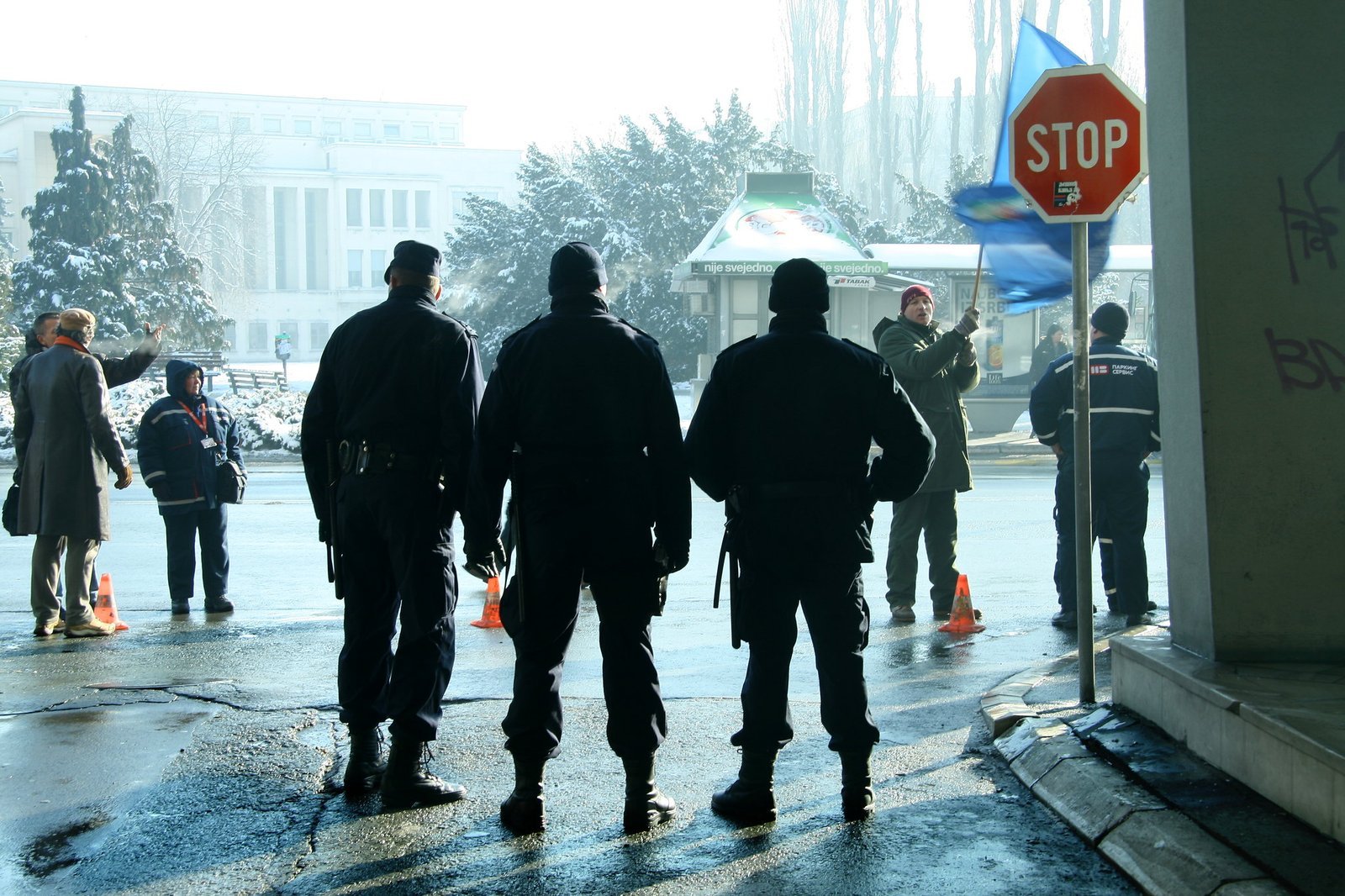SERBIA: draft law on internal affairs passes public debate despite the opposition of citizens and experts (UPDATED)
UPDATE (source: N1 Beograd, 23/09/2021): The Minister of Internal Affairs of Serbia, Aleksandar Vulin, stated that, at the request of the President of Serbia Aleksandar Vučić, the Draft Law on Internal Affairs was withdrawn. The Draft Law, which would have brought Serbia closer to autocracy, faced strong reaction from the civil society and independent media.
In the explanation of the decision, as announced by the Ministry of the Interior of Serbia, Vulin stated: “The cameras that made London safe were attacked in Belgrade, what is good for the citizens of the EU is marked as repression for the citizens of Serbia. Through intelligence work, we came to the information that several foreign Western intelligence services, through their agency network in the media, NGOs and political parties, made media preparations for the organisation of violent protests aimed at destabilising Serbia. Serbian citizens are not important to them and they are ready to throw them in meaningless conflicts.”
“Considering all the facts, President Vučić asked me to withdraw the Draft Law on Internal Affairs from the procedure. The presidential one does not deny it, and I will do it. This is my personal defeat and I will bear its consequences, but I also want to let the public know that I will continue to fight for a secure Serbia despite the agents and their financiers. The Draft Law on Internal Affairs has been withdrawn, you will have to look for some other reason for the blood on the streets of Belgrade“, Vulin said.
°°°
Source: Masina.rs, author I.K., 20 September 2021
The public declaration on the Draft Law on Internal Affairs, which will enable biometric surveillance, was completed on Saturday.
The Law on Internal Affairs (Nacrt Zakona o unutrašnjim poslovima), if adopted, will replace the existing Law on Police. According to N1 media, this is a comprehensive and systematic regulation. Only reading the summary version of the Draft took two hours, which left a record short time for citizens and experts to comment on it. Namely, the debate that ended on Saturday in Belgrade, Novi Sad and Nis lasted only five days, although the previous Law on Police was set for one year for the same purposes.
The short deadline for getting acquainted with the material and commenting on the Draft is one of the first objections. Last week, the Belgrade Centre for Security Policy drew attention to the fact that experts were surprised that a new law was being passed at all. As Bojan Elek, coordinator of the National Convention for Negotiating Chapter 24, told Danas, the draft appeared on the website of the Ministry of the Interior in August without prior notice, and the Government’s plan did not foresee a new law, but amendments to the existing Law on Police, and the convention was not consulted. In his opinion, the novelties envisaged by the Draft could have been included in the amendments, without the need for a new law to be passed.
The planned novelties, however, could be dangerous for the civic freedoms, with which the coordinator of the convention agrees. One of the articles of the law envisages sanctions for publishing data on officials exercising police powers, which in practice means that no one will be allowed to publish the identity of a police officer who abuses his powers and uses excessive force. An additional obstacle to identifying such officers will be that their uniforms will no longer bear surnames, but codes.
Also, NewsMax Adria warns that, if the law is passed, the police will be allowed to record the citizens, without reciprocity. As Dobrica Veselinović from Ne Davimo Beograd states for this media, the initiative finds problematic that the Draft proposes sanctions for legal entities that use the word “police” without authorisation.
Former Commissioner for Information of Public Importance, Rodoljub Šabić, stated for Pescanik that this provision (Article 355, paragraph 1, item 1), which provides for the punishment of anyone who “uses the term police without the approval of the Minister” really sounds like it prohibits everyone from using the term police, which raises understandable concerns. However, he explains that this is a ” clumsy formulation” which actually means forbidding citizens to use the word police in their own names.
While this provision may be just rude, some others remain ominous. The most attention and criticism was caused by the provision that allows the police to use software for automatic detection and recognition of faces based on biometric characteristics of faces. As Masina portal reminds, the equipment for this surveillance system has already been purchased and largely installed by Chinese tech giant Huawei, although there was no public discussion about it, and despite the opposition of civil society. Šabić, who, as Commissioner for Information of Public Importance, repeatedly objected to the documents that were published with the intention of providing a legal basis for the implementation of the supervision project, today reminds that the installation of the disputed system is “contrary to the Constitution and laws”. Sabic also reminds that the Ministry of Interior showed great non-cooperation with citizens, refusing to disclose the data of the contract and the price of the project.
Šabić believes that the new law introduces the worst and broadest possible formulation of conditions for the application of surveillance software, allowing the police to apply it “whenever they want and in relation to whomever they want”, confirming all the fears expressed by civil society organisations in relation to the new law.
The Draft Law comes days after the United Nations appealed for the sale and use of similar inhumane surveillance systems to be suspended by an international moratorium until adequate legal restrictions are formulated.

